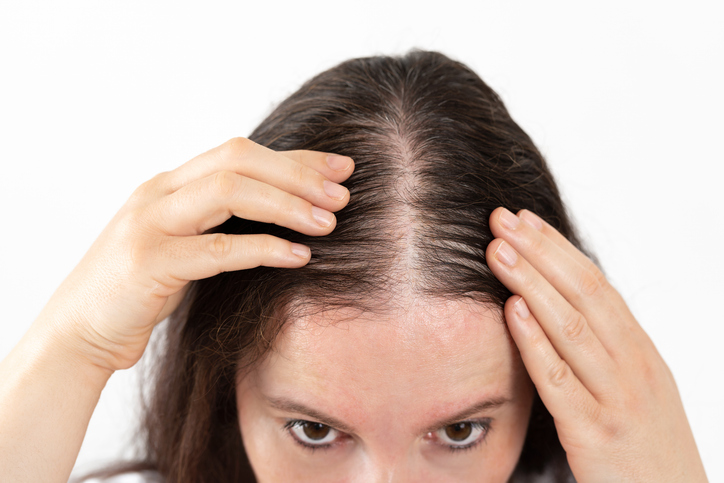2024-07-08
Cases of Alopecia Aerata following vaccination against Covid-19
Dermatology and Venereology
Since the roll-out of COVID-19 vaccines, various adverse events have been reported, including alopecia areata (AA), which, although rare, has been a notable effect due to its significant social and psychological impact on patients.
The aim of this study was to review the literature on cases of AA following vaccination against COVID-19 in order to provide an overview of the available data.
The systematic review was conducted by searching for articles on AA after COVID-19 vaccination in international databases such as Embase, MEDLINE, PubMed, Web of Knowledge and Ovid, covering the period December 2019 to December 2023. Included studies were required to provide data on patients who developed AA after at least one dose of COVID-19 vaccine. Information collected included gender, age, country/region of origin, vaccine type, time from vaccination to symptom onset, clinical manifestations of AA, trichoscopy and histopathology findings, treatments and outcomes.
Of a total of 579 studies reviewed, 25 articles involving 51 patients were included in the review. Of these patients, 27 (52.9%) developed new AA after receiving the COVID-19 vaccine, while 24 (47.1%) patients with pre-existing AA had a recurrence or exacerbation after vaccination. Five vaccines were associated with cases of AA, with Pfizer vaccine accounting for the highest percentage of cases (45.1%), followed by ChAdOx1 nCoV-19 vaccine (27.5%), Moderna mRNA-1273 (19.6%), Sinopharm (3.9%) and SinoVac (3.9%).
Cases of AA occurred mainly in the month following the first dose of vaccine, then the incidence gradually decreased over time. With regard to treatment, 38 patients were treated with topical or systemic corticosteroids. Eleven patients received Janus Kinase inhibitors (jakinib), eight with tofacitinib and three with an unspecified jakinib. However, three of the eleven patients treated with jakinibs experienced post-treatment exacerbations.
AA after vaccination against COVID-19 is a rare but significant phenomenon. Physicians need to be aware of this possibility to enable early diagnosis and appropriate treatment. This review highlights the need for increased vigilance and early recognition of symptoms of post-vaccination AA in order to effectively manage this potential complication.
The aim of this study was to review the literature on cases of AA following vaccination against COVID-19 in order to provide an overview of the available data.
The systematic review was conducted by searching for articles on AA after COVID-19 vaccination in international databases such as Embase, MEDLINE, PubMed, Web of Knowledge and Ovid, covering the period December 2019 to December 2023. Included studies were required to provide data on patients who developed AA after at least one dose of COVID-19 vaccine. Information collected included gender, age, country/region of origin, vaccine type, time from vaccination to symptom onset, clinical manifestations of AA, trichoscopy and histopathology findings, treatments and outcomes.
Of a total of 579 studies reviewed, 25 articles involving 51 patients were included in the review. Of these patients, 27 (52.9%) developed new AA after receiving the COVID-19 vaccine, while 24 (47.1%) patients with pre-existing AA had a recurrence or exacerbation after vaccination. Five vaccines were associated with cases of AA, with Pfizer vaccine accounting for the highest percentage of cases (45.1%), followed by ChAdOx1 nCoV-19 vaccine (27.5%), Moderna mRNA-1273 (19.6%), Sinopharm (3.9%) and SinoVac (3.9%).
Cases of AA occurred mainly in the month following the first dose of vaccine, then the incidence gradually decreased over time. With regard to treatment, 38 patients were treated with topical or systemic corticosteroids. Eleven patients received Janus Kinase inhibitors (jakinib), eight with tofacitinib and three with an unspecified jakinib. However, three of the eleven patients treated with jakinibs experienced post-treatment exacerbations.
AA after vaccination against COVID-19 is a rare but significant phenomenon. Physicians need to be aware of this possibility to enable early diagnosis and appropriate treatment. This review highlights the need for increased vigilance and early recognition of symptoms of post-vaccination AA in order to effectively manage this potential complication.

Last press reviews
Dark chocolate: guilty pleasure or a renal ally?

By Ana Espino | Published on December 16, 2025 | 3 min read<br>...
A post-exercise infrared sauna session: a booster for neuromuscular recovery or just comfort?

By Lila Rouland | Published on December 15, 2025 | 3 min read<br>
Cinnamon: more than just a spice?

By Ana Espino | Published on December 12, 2025 | 3 min read<br>...